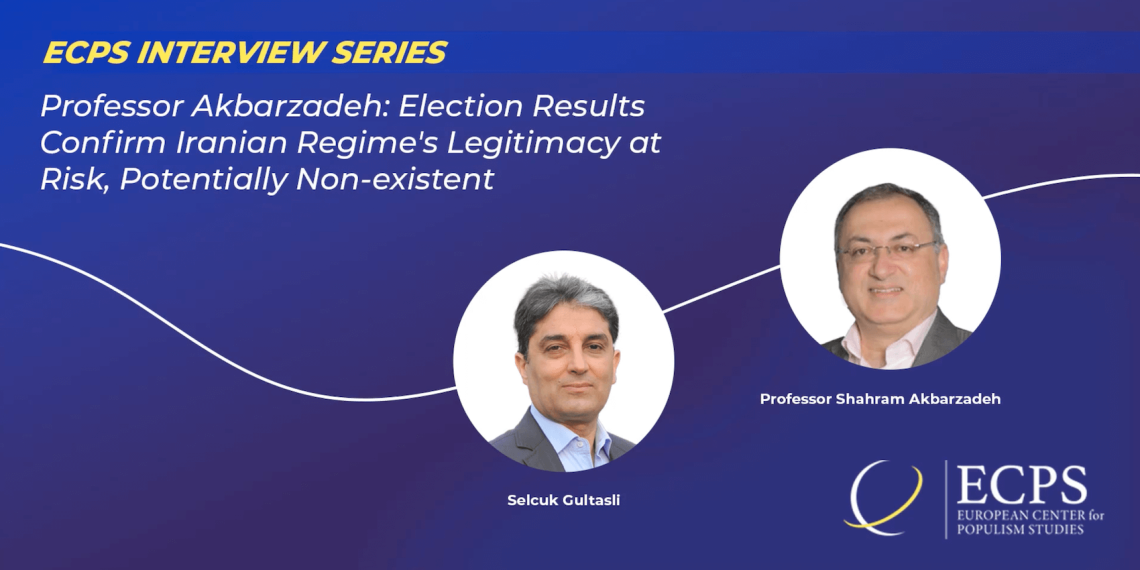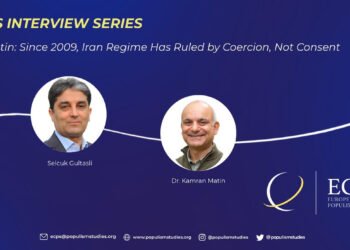Reminding that elections are pivotal in justifying Iranian religious leadership and sustaining political legitimacy, Professor Shahram Akbarzadeh emphasizes that the recent turnout data from Iran’s elections serves as a stark wake-up call for authorities. He argues that the low turnout raised serious concerns for the regime’s legitimacy and underscores that the Iranian regime has come to recognize that its legitimacy is significantly at risk, perhaps even non-existent.
Interview by Selcuk Gultasli
Professor Shahram Akbarzadeh, a distinguished Research Professor at the Alfred Deakin Institute, Deakin University, emphasizes that the recent turnout data from Iran’s elections serves as a stark wake-up call for authorities. He underscores the significance of Supreme Leader Ali Khamenei’s consistent emphasis on the necessity of voter participation to validate the regime’s legitimacy. “Elections are pivotal in justifying Iranian religious leadership. Despite its reluctance to relinquish control, the Supreme Leader has adamantly advocated for the continuation of elections, emphasizing their importance in sustaining political legitimacy,” underlines Professor Akbarzadeh.
Iran witnessed its lowest voter turnout since the 1979 Revolution during the parliamentary elections held on March 1, 2024. Conservative politicians secured a dominant position in Iran’s parliament, maintaining control over the Islamic Consultative Assembly despite a record-low turnout amid widespread boycott calls. These results unfolded against the backdrop of heightened tensions following the tragic death of Mahsa Amini, sparking widespread protests that directly challenged the legitimacy of the regime. Akbarzadeh notes, “The low turnout raised serious concerns. The national figure of 41% is alarming, but it’s even more concerning when considering urban centers. For instance, in Tehran, the turnout was approximately 25%, significantly lower than the national average. Only a quarter of eligible voters cast their ballots in Tehran. I think the regime has come to recognize that its legitimacy is significantly at risk, perhaps even non-existent.”
In an exclusive interview with the European Center for Populism Studies (ECPS), Professor Akbarzadeh offers a critical analysis of the regime’s response to societal unrest and the evolving dynamics within the women’s empowerment movement against the backdrop of heightened tensions following the death of Mahsa Amini. Despite the regime’s efforts to suppress opposition, particularly in the aftermath of Mahsa Amini’s killing, Professor Akbarzadeh pays homage to the resilience of Iranian women who continue to defy oppressive norms and assert their rights.
Moreover, Professor Akbarzadeh highlights the consolidation of power by hardliners within the Iranian government and parliament, signaling a concerning homogenization of power in the hands of conservative circles. He underscores the regime’s increasing detachment from the electorate, fueled by a lack of responsiveness to popular demands and a narrowing space for dissent within the Parliament.
Looking ahead, Professor Akbarzadeh also warns of a turbulent future characterized by an increasingly hardline Iran and the potential return of the Trump administration in the US. He cautions against the uncertainty surrounding US policy towards Iran, particularly in light of past decisions that destabilized diplomatic efforts, such as the withdrawal from the nuclear agreement. Against this backdrop, Professor Akbarzadeh emphasizes the need for vigilance and foresight in navigating the complex geopolitical landscape, where the interplay between domestic discontent and international relations shapes the trajectory of Iran’s governance structures.


